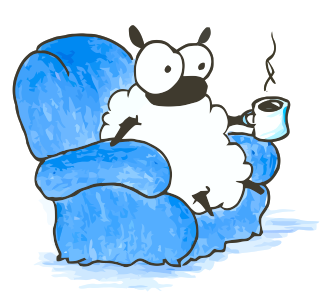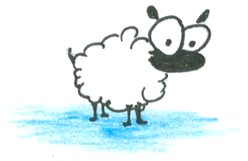Case Number One: “to jip”
For the longest time, I used to think that “jip” was a verb meaning “to cheat,” as in, “that cashier jipped me a nickel.” I later discovered, with much embarrassment and horror, that ‘jip’ was spelt ‘gyp,’ and short for gypsy, as in “that cashier acted like a gypsy by stealing my nickel. Damn gypsies!” Indeed.
A slightly more modern take on the same old racial slur is the verb “to jew,” (It’s an important term if you, like Mel Gibson and many German people of the late 1930s, believe that Jewish people are cheap and part of a global conspiracy controlling all the world’s banks. Or something like that. I’m not really up to date on my anti-semitic propaganda.)
The point being, using any term referring to a racial group as a verb, especially to denote perceived stereotypical behaviours of said racial group, is not a great thing to be doing, and has the effect of making you sound like the sort of person for whom ‘eh-rab’ and ‘sand nigger’ are synonymous. (I really don’t think many of these people are reading my blog, or have internet access, or spend much time reading, anyways.)
The point being, don’t make my mistake. “Jip” is spelt with a ‘g’ and a ‘y,’ and making fun of gypsies and their crafty, nickel stealing ways is not a cool thing to do.
Case Number Two: “nap-sac”
When I was six and living in rural Ontario, every morning at 7am I would grab my backpack, head down the road to the village bus stop, and stand in the waist-deep snow for upwards of thirty minutes, waiting for my school bus. (The bus company gave students a twenty-minute ‘range’ of times during which their bus would typically arrive, although buses were known to arrive outside of this rang quite regularly, and apparently nobody cared about frost bite in the early nineteen nineties.) My backpack and I arrived at the school by 8:30.
My grandmother sometimes referred to my backpack as a ‘nap-sac,’ but my grandmother said lots of weird things, like ‘dinner’ instead of ‘lunch’ (and ‘supper’ instead of ‘dinner’), and other terms like ‘chesterfield’ and ‘brassier,’ the meanings of which eluded me for many years. Also, she said ‘warsh’ instead of ‘wash’ when she really meant ‘bath,’ as in, “when I was your age, we didn’t have warshrooms, just outhouses and chamber pots. Also, I had surgery once on this kitchen table. Enjoy your supper.”
Other, equally confusing people have sometimes called backpacks ‘napsacs’ in my presence. I tended to ignore their obvious misuse of the English language, confident that I was carrying a pack on my back which had nothing whatsoever to do with napping. I sometimes wondered whether ‘nap-sac’ was a term warped through years of use by children (and their excessively accommodating parents) - like ‘twee’ instead of ‘sweet,’ or ‘emu’ instead of ‘mummy.’ (That last one is probably only specific to my family...don’t ask.)
Mostly, I thought people who said ‘napsac’ were stupid, language-eroding miscreants. And, readers, I was wrong.
Apparently, it’s not even a nap-sac. It’s a knapsack, with no less than two ks. The term comes from the Dutch, who have given us other useful terms like knickerbocker and pickle. To ‘knappen’ is to eat, and a knapzac is a bag in which you keep your lunch. Hence, knapsack. Like rucksack, which is also dutch, meaning ‘a bag you keep on your back.’
Or, in understandable English, a ‘backpack.’




